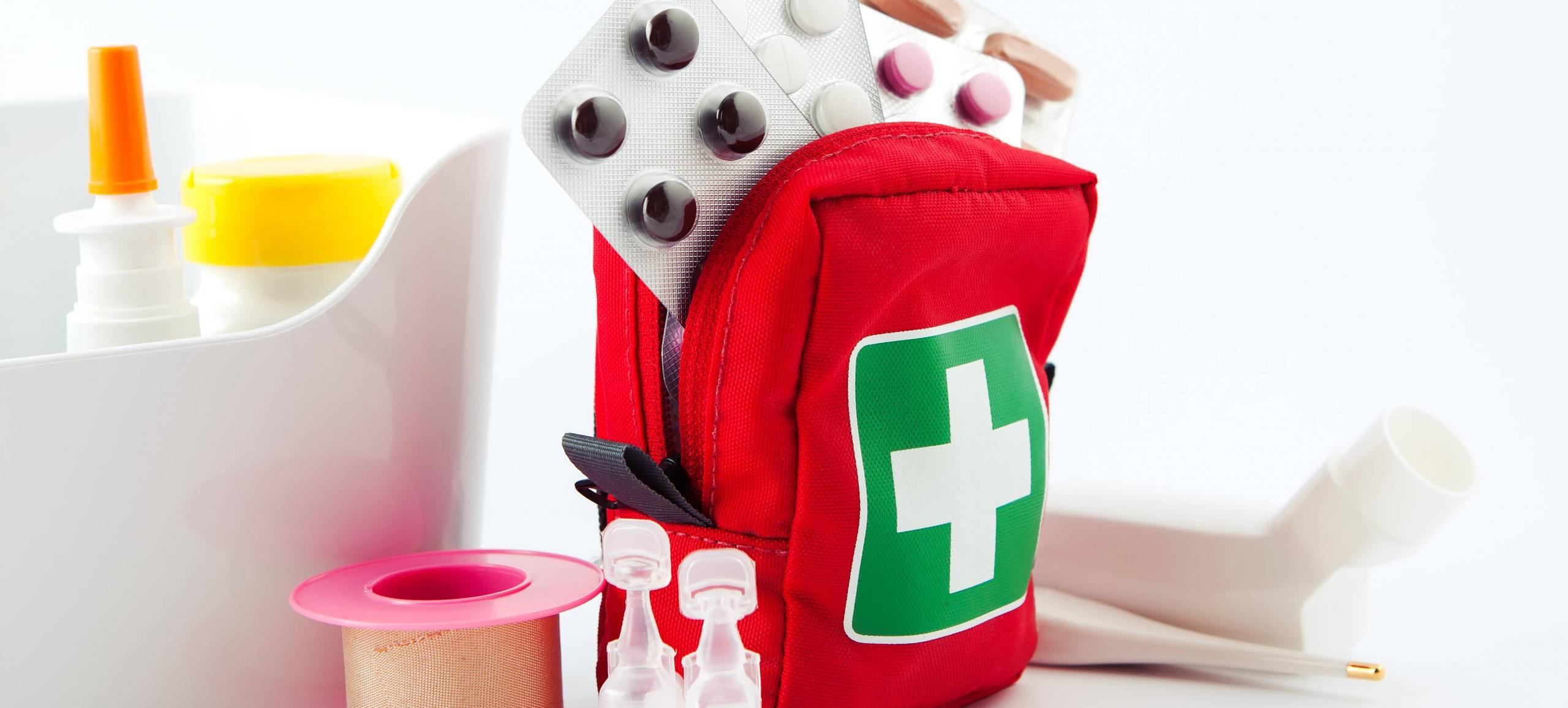It is better to be prepared for small health surprises during the holidays. Especially if you are going abroad or to a place where a pharmacy or a doctor is a long way away. Then we will have to treat minor ailments ourselves, and in the event of bigger problems, we can safely survive before professional help can be found.
Always safe. The saying applies quite well to a holiday trip, also when it comes to preparing a small first aid kit, which should be included in every traveller's suitcase. A few basic medicines can come in handy in cases of minor ailments, bites or injuries. How do you choose? It all depends on the nature of the trip, the destination and whether we will be accompanied by children or elderly people.
It is essential to take with you sufficient quantities of the medicines you take continuously, e.g. cardiovascular, hypertension, cholesterol or diabetes, hormonal medicines. It is better to organise an adequate amount of these before you leave. A doctor taking us away from home will not necessarily want to give us a new prescription "on his word". Admittedly, an e-prescription from the GP can be a lifesaver, but this too requires effort and time. On top of this, the pharmacy at your holiday destination may be far away.
Composing a first aid kit is not a difficult task, and it is worth asking your pharmacist about the selection of specific medicines. Above all, remember analgesics and antipyretics. A change in climate and location can cause ailments that will require their use. If you are travelling with children, prepare ones that are age-appropriate in terms of dose but also consistency. As part of painkillers, think about throat medicines. Colds, especially in the first days of a holiday, are quite common. Therefore, cough syrup and catarrh drops may be useful.
One of the most common holiday problems is gastric problems. Poisoning caused by stale food or bathing in unclean water is common. If they are of moderate severity, we can safely treat them ourselves. To this end, it is worth taking anti-diarrhoea drugs, probiotics and electrolytes with you. Medication for abdominal pain or constipation and a diastolic preparation may also be useful. Remedies for motion sickness and seasickness are also useful.
Dressings and disinfectants should also be thought of. Every wound, even the smallest one, should be disinfected and protected a bandage plaster or a sterile bandage, depending on the extent . When it comes to plasters, it is best to choose waterproof ones. If you plan to go hiking or do strength and power sports, it is worth considering an elastic bandage to immobilise the affected part of the body in case of a serious injury, e.g. a muscle strain or sprain, before visiting the doctor. For abrasions caused by walking in footwear that is not very comfortable, it is worth preparing a special hydrogel patch. Such a dressing relieves pain and, above all, accelerates healing and protects against wound infection. Anticipating the risk of bruises, it is worth taking cooling sprays and gel preparations to alleviate the symptoms of this type of injury.
An allergy or sensitisation attack can happen to you even if it has never happened before. To mitigate the effects, it is worth carrying antihistamine available over-the-counter and eye and nose drops to relieve the symptoms of allergies. People who have ever experienced anaphylactic shock They must obligatorily carry an ampoule of adrenaline. It is also important to have products to alleviate the effects of bites such as skin itching and inflammation. This is especially important for children, who find it more difficult to control their skin scratching. It is a good idea to take along ointment for burns - not just sunburn - or plasters to speed up the healing of such injuries.
Small accessories should also be added to the set of medicines: small scissors, safety pins and a thermometer, antibacterial hand gel. If travelling with a very young child, also a nasal aspirator. When packing medicines, check expiry dates, dosage regimen and keep leaflets, although blister packs, bottles or tubes can be removed from cardboard boxes taking up space. It is also a good idea to make sure at what temperature to store medicines. If the manufacturer recommends a storage temperature below 25 °C, it is better to pack them in a thermos flask. This applies, for example, to various types of suppositories. If stored properly, they will not lose their therapeutic properties. Medicines that need to be stored in a refrigerator should be transported in a special heat insulating bag or in a travel refrigerator and transferred to the refrigerator upon arrival. When travelling, the holiday medicine cabinet should be in a place that is easily accessible, but absolutely out of the reach of children. It should also not be exposed to high temperatures. We can treat ourselves for three to five days. If the symptoms persist, a visit to the doctor is necessary. Thus, it is not worth making large stocks. As far as permanent medication is concerned, it is also advisable to take only as much as you will need for the following days of your holiday. Nowadays, it is also a good idea to carry your COVID-19 vaccination certificate with you, as you never know when you will need it.
Source: medexpress.co.uk

